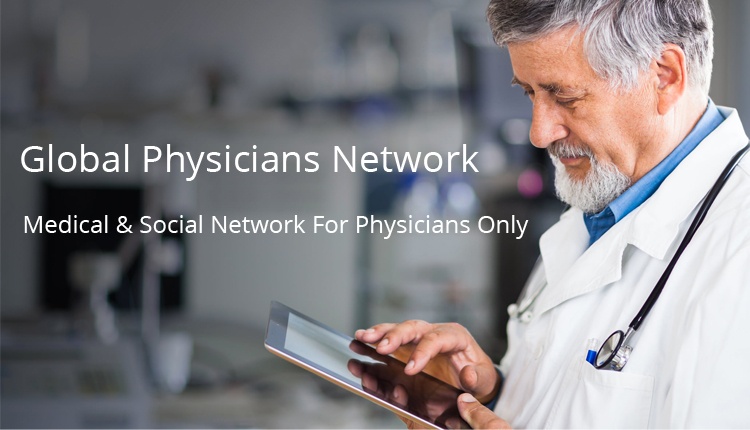Physician Networks: Ushering a New Era in Medical Care Delivery

The focus of the healthcare sector is slowly but surely shifting from hospitals to ambulatory care and telemedicine. In line with this shift, healthcare decision makers are struggling with two fundamental questions:
1) How to facilitate comprehensive patient care in this global era
2) How to turn physician groups into high-performing networks that deliver high-quality care
High-performing physician networks tend to lead with purpose and focus on the full patient experience. Online physician networks are also making it easier for medical professionals to connect, collaborate, and share their insights and experiences with other physicians and medical experts. Earlier, physicians were limited to resources such as journal articles and conferences to know about advancements in medicine. However, with the advent of high-performing network sites, physicians can now brainstorm case studies, discuss rare conditions, and share surgical techniques instantly.
An Elsevier survey showed that physicians are on the constant lookout for latest studies to aid in the clinical decision-making process. “Findings from this survey reveal that, regardless of which country and background doctors and healthcare professionals come from, their objectives and priorities with regards to clinical search is very much the same – trusted content and quick access to the most recent information.” Pete Read, CEO, Global Growth Markets.
Primary Benefits of Physician Networks
- These networks allow members to filter news feeds that are relevant to their field.
- Educators can reach out to a larger audience when compared to traditional teaching methods.
- These networks also allow physicians to share case reports and consult other experts from the medical community.
- Physicians get easy access to files, presentations, and images that are shared within the community thereby enhancing the knowledge pool.
- In addition, physicians also get access to information that is most recent and reliable, including up-to-date research.
Such networking sites also help promote the important work done by the medical community. This inspires physicians to perform efficiently and give their patients the best medical care possible.
Furthermore, effective networks have the following in common:
- Lead with purpose.
- Focus on full patient experience.
- Ensure all challenges are addressed.
Examples of Physician Networks
A number of academic networks, specifically for physicians provide networking, education, and crowd-sourcing opportunities. These networks allow members to get inputs from peers on publications, medical cases, and protocols. Some common networks that are exclusive to physicians include G-Med, Sermo, Doximity, DailyRounds, and Among Doctors.
Talking specifically about G-Med, this online medical community is the largest global community aimed at physicians worldwide and is a great tool for managing research or clinical trials across many countries. The platform is free to use and physicians can easily create a profile with just their email address and license details. G-Med members can also join and create physician groups and expert panels, based on a common interest, idea, activity, or event. Physicians can collaborate using posts, texts, pictures, and also an integrated proprietary live video system (no software download is needed) that is tailored to medical discussions in order to enable fast resolution of clinical cases.
Members can also discuss and collaborate with colleagues in their specialty or any other specialty, as well as share their insights, experience, and opinions. They can also comment on posts and view publications of peers. Moreover, along with managing all research sites through one international secure network, G-Med members can promote their research and request for patient recruitment too.
Are you a physician looking to build your reputation in the medical community or connect and collaborate with fellow experts? Then look no further! G-Med is one of the largest global networks for physicians. Sign up today for free!
Shaping the Future of Communication within the Medical Community
The role of physician-focused networks has many exciting prospects and it is going to be interesting to see where it leads. For example, G-Med has announced that their “Tel Aviv-based G-Med” plans to provide private online clinics so that patients can speak to physicians without leaving their home. This has huge implications for communities where it is difficult to access healthcare services.
In the fall of 2018, G-Med will launch a new, free product for hospitals and clinics that will allow a private branded space for hospitals within the platform’s global network. Primary features include the following:
- Global Collaboration – The branded arena will allow the hospital’s medical staff to easily participate in the global activities within G-Med, benefiting from the global platform for clinical consultation, collaboration, and education.
- Internal Social Network – In addition, the branded arena will allow an exclusive internal collaboration virtual space (for hospital’s members only – cannot be seen by other hospitals). This platform can be used for medical/administrative messaging and internal collaboration along with features like posts, comments, alerts, events, a fully featured white label telecare system and more.
So, what role will physician networks have in the future? How do you think this form of medical communication will shape the future of healthcare? Share your thoughts with us in the comments section below!









